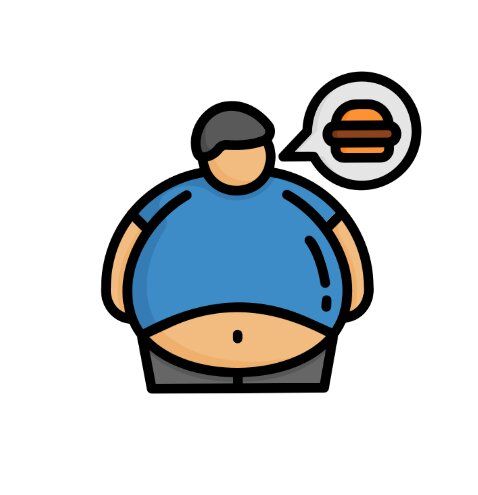What Causes It?
Genetic factors - Inherited genes influencing metabolism, appetite regulation, and fat storage tendency.
Dietary patterns - High consumption of energy-dense foods, large portion sizes, and frequent snacking.
Physical inactivity - Sedentary lifestyle with inadequate calorie expenditure through movement.
Environmental factors - Limited access to healthy foods, abundance of fast food, and neighborhood designs discouraging physical activity.
Psychological factors - Emotional eating, using food to cope with stress, depression, or anxiety.
Socioeconomic status - Limited resources for healthy food options or safe exercise environments.
Medications - Some drugs, including certain antidepressants, antipsychotics, steroids, and diabetes medications, can promote weight gain.
Medical conditions - Hypothyroidism, Cushing's syndrome, polycystic ovary syndrome, and others can contribute to weight gain.
Gut microbiome - Imbalances in intestinal bacteria may influence how food is digested and energy is extracted.
Sleep deprivation - Inadequate sleep disrupts hunger hormones, leading to increased appetite.
Endocrine disruptors - Environmental chemicals that may interfere with hormone function and fat cell development.
Age-related factors - Decreasing metabolism and muscle mass with aging make weight management more challenging.
Cultural influences - Food-centric social activities and cultural norms around eating and body size.
Pregnancy - Weight gained during pregnancy that isn't lost afterward can accumulate over multiple pregnancies.
Epigenetic factors - How environmental exposures affect gene expression, potentially across generations.
Signs & Symptoms
Physical signs:
Excess body fat, particularly around the abdomen (central obesity).
Increased body mass index (BMI) of 30 or higher for adults.
Difficulty with physical mobility and reduced exercise tolerance.
Breathlessness with mild exertion.
Excessive sweating (hyperhidrosis).
Skin fold irritation or infections in areas where skin rubs together.
Joint pain, especially in weight-bearing joints like knees and hips.
Edema (swelling) in lower extremities.
Sleep disturbances, including sleep apnea with loud snoring and breathing pauses.
Health complications:
Elevated blood pressure (hypertension).
High blood glucose levels or type 2 diabetes.
Abnormal blood lipid profile (high triglycerides, low HDL cholesterol).
Non-alcoholic fatty liver disease.
Gastroesophageal reflux disease (GERD).
Female reproductive issues including irregular periods and fertility problems.
Male reproductive issues including erectile dysfunction and reduced testosterone.
Psychological and social impacts:
Low self-esteem and poor body image.
Depression or anxiety related to weight status.
Social stigmatization and discrimination.
Reduced quality of life.
Difficulty with certain daily activities.
Warning signs requiring medical attention:
Chest pain or difficulty breathing.
Severe joint pain limiting mobility.
Signs of diabetes like excessive thirst, frequent urination, or unexplained weight loss.
Significant psychological distress affecting daily functioning.
